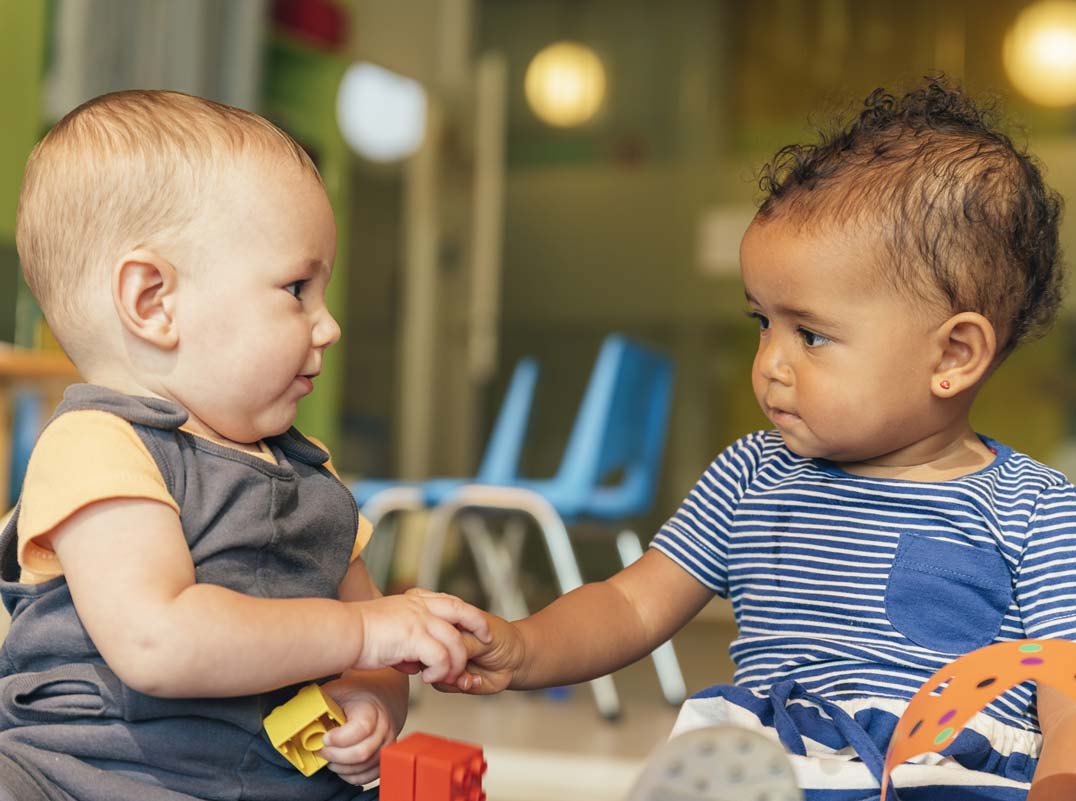
The CMV TransmIT Study is entering a new stage!
We are expanding the types of viruses and redesigning the study to include a new name: Infectious Disease Tracking and Community Empowerment in Research (IDTraCER) Study. Watch for updates on our progress and how you can learn about participating in the study through your center. If you would like your center to join the EEC center research network, please share this website with the staff and ask them to contact us!

What is cytomegalovirus?
Cytomegalovirus (CMV) is the most common prenatal infection. CMV can cause a range of major health problems in newborns. Pregnant people who are exposed to large groups of young children like childcare or preschools are at high risk for CMV infection and need to take precautions.
CMV by the numbers
- 91%
- 1/200
- 30,000
- 10-15%
- 15%
- 1/5
- ONE
- 400
References

What is this study about?
Researchers want to study how cytomegalovirus (CMV) spreads among young children in early education and care centers. Results of the study may help decrease CMV spread from these children to pregnant people caring for them.
How do I reduce my risk of contracting CMV?
If you are pregnant, you can help protect your unborn baby from cCMV by avoiding contact with saliva and urine from babies and young children.